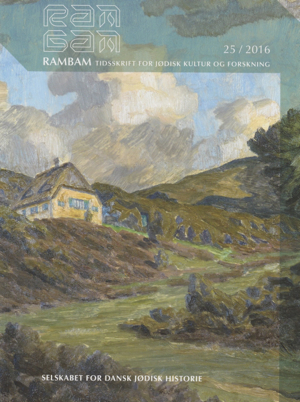En utænkelig rejse
Resumé
An Unlikely Jouney
The purpose of the article is to show what level of knowledge the Danish Foreign Ministry gained of the persecution of the Jews in Belgium. Due to Denmark's position in the Third Reich, a Danish consulate remained in existence in Brussels throughout the war period. By focusing on the narrative of the Danish-Jewish woman Alice, the reader gains insight into both the personal experience of Alice, but also the Danish diplomats' knowledge of the formal and informal persecution of the Jews in Belgium. Detailed knowledge was acquired on the anti-Jewish laws such as definition, registration, exclusion, Aryanisation, and theft. Alice's case underscores that the diplomats were also well aware of the round-ups and deportations of the Jews in Belgium.
Alice's story is remarkable. She marries a Dane in 1938 and gains Danish citizenship, but quickly relocates to Belgium with her husband. In the fall of 1943, Alice is arrested by Gestapo and brought to the internment camp at the Kazerne Dossin. The barracks serve as a transit camp where 25,000 Jews are deported to the infamous death-camp Auschwitz-Birkenau. The diplomats now begin to negotiate for Alice's release. After several visits, letters and phone-calls to the Gestapo and the German embassy, Alice is released from the camp. Alice's Danish citizenship and marriage to an Aryan clear the barriers for a journey to Denmark. However, Alice fears travelling to Denmark. The understandable fear results in a nerve-racking six postponements of her travel date, where the diplomats have to re-negotiate with the Germans. In December 1943, Alice arrives safely in Denmark and is relocated to Sweden. This unlikely journey only came into place due to the persistent work of the Danish diplomats.





